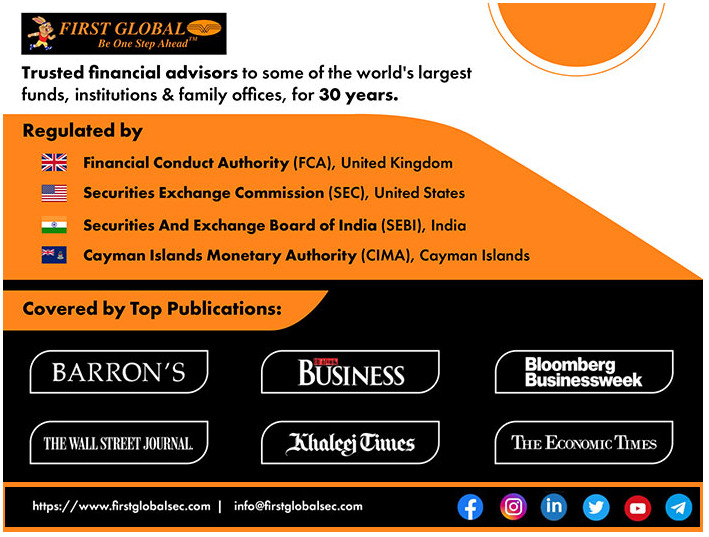I have written elsewhere about recurrent bubbles in financial markets.
There is a pattern to them, where people forget what has happened in the past...once again get caught in the rosy projections of what are ultimately the same old things. Or in some cases, at times knowing the excesses but still believing that they can get out ahead of the mob, till one fine day everything blows up.
You can learn more about this phenomena in several books on bubbles including John Kenneth Galbraith's concise and brilliant, "A Short History of Financial Euphoria".
But the thing is this:
Forgetting history & excesses are not just a feature of financial or capital markets.
You see this play out in multiple industries!
Sometimes it is the entrepreneurs and business people who are misled repeatedly about the prospects of an industry...they forget the many past busts.
Let us look at the airlines in industry for instance.
Damania, Modiluft, East West, NEPC Airlines etc were among the first lot of private airlines in India in the 1990s and early 2000s. All of them eventually all shut down...but this fact was merrily forgotten when Kingfisher, Deccan, Jet Air started off a few years later.
When their story was about over, came Spice Jet, Go Air etc in next lot...that's how it goes on.
Bank licenses are considered a gold mine, citing examples like HDFC Bank and Kotak Mahindra.
Centurion, Times Bank, Global Trust, Yes Bank & many many more started by experienced professionals (besides the many PSU and cooperative banks) that had to be shutdown or restructured are forgotten!
These examples were about business people forgetting the track record of the industry and setting up a similar company thinking that they will succeed where others have failed in the past.
We see the same thing in investors whether they are retail investors or sophisticated institutional ones.
After a spectacular bust in an industry it takes only a few years for all the lessons to be forgotten...there is no institutional memory of the same.
For example, in financial services the same thing of giving people loans to buy things is packaged differently and there is excitement among investors to get in every time.
Off late it has been something called BNPL, or 'Buy now pay later'... Supposed to be an exciting new innovation. The reality? It nothing but the literally centuries old buying on installment scheme...but BNPL sounds fancier, and most importantly, 'new' and 'innovative'.
People laud growth in landing businesses but how difficult is it to give out money faster and faster...this simple fact is forgotten when people chase lending businesses without a thought in the world. The real difficulty is in getting the money back, but that shows up only years later.
How many remember the first round of EdTech scam companies topped by Educomp, headed by the IIM pedigreed? There were many others too at the time like Treehouse, Everonn, Zee Learn, Jetking etc.
We, at First Global, did a report on why none of financials made sense in 2007, when Educomp was a much owned stock.
These were the red flags for Educomp:
So eventually most of these education Tech companies went bust. But the interesting part is what happened thereafter.
After decorous mourning period of a few years once again EdTech or education technology companies became the darling of the investors, this time more in the unlisted space where the likes of Byju's raised over 5 billion dollars in spite of very well-documented holes in the business model as well as corporate governance.
Yet the funding rounds continued probably fueled by the greater fool’s theory that the investors would get an exit by palming it off to someone...maybe in an IPO.
Except that now the story has began to unravel and the sequel to the earlier EdTech story is in the theaters now.
As the cliché goes: those who forget history are condemned to repeat it.
Why does this sort of behaviour happen?
Besides greed, there is also anothe reason: We always think we will beat the odds in any game or don't think about the odds at all!
None of us are inclined to think about data when we start a new business or for that matter any new activity.
That is how so many get taken in by these fancy courses promising that you can make a living by trading specially trading exotica like options and other derivatives.
A visit to the SEBI website shows that not even 10% of the traders in options make money and even of those most of them make only a paltry amount, but human beings don't like data.
As Rolf Dobbeli writes in 'The Art of Thinking clearly', "We respond to the expected magnitude of events (the size of the jackpot) but not to its likelihood. In other words we lack an intuitive grass of probability."
In simple terms when we think of a big pay off later se bhi set our sites on someone who has made of fortune in trading, we cannot process the fact that only one percent or 0.1% of the traders have made that kind of money. We just see the amount of money and chase it...only to come to grief.
Daniel Kahnemman has written extensively about this phenomenon, calling it 'base rate blindness'...and given examples from his own life where he either did not think of what the data was at all or was comfortable in the belief that he was way better than the average and hence would beat the odds.
For example, he talks his confidence that he would finish his book in 6 months without asking the question of his publisher, "How long does it typically take for 2 authors to write a non-fiction book together?" Later on he found out it was a couple of years.
Similarly when he was part of a team redesigning part of the curriculum in Israeli schools and they did find out how long typically such an exercise took to be implemented which was a few years, they were convinced that this particular team was smarter and better than the previous committees and they would get it done in a matter of months. The reality? In their case the change dragged on for years and was never implemented.
Turns out that even the great Daniel Kahnemman who knows all about such pitfalls still did not beat the odds in either of the cases!
Therefore force yourself to look at the data. Of people/companies doing a particular activities how many have succeeded in the past? What has been the history of this particular industry? Ask these questions whether you are starting a business or investing in one. And no, all of us are not and cannot be hugely above average. Not a glamorous thought or maybe not even happy one but your bank balance will thank you for having thought this through.
From the desk of
Devina Mehra
If you want any help at all in your wealth creation journey, in managing your Investments, just drop us a line via this link and we will be right by your side as your wealth advisor, super quick!
Or WhatsApp us on +91 88501 69753
Chat soon!


Economists Think Dollar's Fall May Explain the Recent ‘Rally’ by Steve Liesman
Einstein taught us about relativity in nature. Now come Devina Mehra and Shankar Sharma of First Global to teach us about relativity in financial markets -- and raise some serious questions about just what is driving stock prices.

First Global reports are quite credible and, on occasion, more than that.
What prompts this mention is Intel's earnings report and the fact that First Global has had a pretty good bead on the company and its stock.

AMD up again following First Global upgrade to ‘buy’ (AMD) By Tomi Kilgore
Analyst Kuldeep Koul at First Global upgraded Advanced Micro Devices (AMD) to "buy" from "outperform," given the "exceptional traction" that the chipmaker's Opteron line of processors has been able to get.

Baidu Climbs on First Global’s ‘Outperform’ Outlook
Baidu Inc., the operator of China’s most-used Internet search engine, rose to the highest price in two weeks after First Global rated the shares “outperform? in new coverage.

Personality counts: Walmart's frugal, but Target charms
"It's better to take a slight hit on [profit] margins and keep on moving and inventing," says First Global Securities. And at least for now, Target is inventing in a way that appeals to consumers with money to spend.

Dead Batteries
At 11 times trailing earnings, Energizer is cheaper; Gillette's multiple is 25. But cheaper doesn't mean better, says First Global.

Bipinchandra Dugam @bipinchandra90
@devinamehra @firtglobalsec
invested in both GFF-GTS and Super I50. Thank you very much for such wonderful investing experience with completely new approach. In my 15years of investing first product I felt which close to what customer want.

Shishir Kapadia @shishirkapadia1
@firstglobalsec @devinamehra
by far you are the best, I have not come across transparency, acumen, global expertise, exposure, protection of capital, delivering return from any fund/ fund managers. Invested very small size in 3 products will keep on increasing it over the period

Piyush Bhargava @PiyushB88762654
@devinamehra @firstglobalsec
Thanks you team FG specially Devina, my investment doubled in less than 3 years in SDPB As a investors & PMS distributor of your product looking to have a long-term relationship with the company.
@KarmathNaveen the person with whom I always interact

Sumeet Goel @GoelSumeet
Very happy & relaxed to be invested with first global pms

Shishir Kapadia@shishirkapadia1
Congratulations on super performance, above all transparency and systematic process are unmatchable.
One must opt this, if person consider him/her self as an investor. Very happy to be part of this since invested. FG has managed worst year (ie 2022) so efficiently and skillfully.

SY @SachinY95185924
With so much of volatility in the market, risk management is very important part & considering that FG is doing awesome work!!! Kudos to you Chief

Amit Shukla @amitTalksHere
Truly outstanding. As a retail subscriber to #fghum #smallcase, I can vouch for the Nifty beating returns (8% vs 3%) in last 1 year. Keep up the awesome work @firstglobalsec
We can load above testimonials on site as a scroller, and just below that we can add a section for compliments . Below tweets are comments and praises are related to our content, performance and some our direct compliments to you.

ADIT PATEL @ADITPAT11226924
Good team...
Special mention @KarmathNaveen .. he is soo helpful anytime of the day or night..

Hindustani @highmettle
Bought Peace with FG-Hum.Moving all funds from DIY investing to well managed and diversified PF at low cost.
It has doubled almost, excellent pick.Every small investor must invest in her FG-HUM Smallcase.

Suresh Nair @Suresh_Nair_23
I have 8 small cases and your has been the most rewarding ones .. thank you Devina.

Sayed Masood @SayedM375
There is absolutely no doubt that she is one of the best investors of India in modern times but more importantly, she shares the most sincere and sane advice with retail investors.

SY @SachinY95185924
Wow Superb Returns🔥 Congratulations Chief for being Number 1 among all PMS!!!
You are one of the sharpest mind in Global Stock Market

AnupamM @moitraanupam
Congratulations Devina, results talk in itself!

Abhishek @simplyabhi21
Congratulations ma’am @devinamehra ! The consistency you have in maintaining the top rank position is outstanding! 👏

Mihir Shah @Mihir41Shah
We are learning More about markets (& Life ) thanks to U than we learnt in our Professional courses.A BIg Thank You, Wish all get Teachers Like You!!

Sumit Sharma @MediaSumit
"The ability to be comfortable with being outside consensus is a superpower in investing...and in life." Devina ji hits the nail on its head!

Majid Ahamed @MajidAhamed1
Congratulations @devinamehra mam! All the best for long term returns as well.

Vinay Kumar @VinayKu05949123
This is the wonderful session I have ever attended till date. One of the most fruitful hour of my life. Devina madam, ur clarity on financial mkts is simply superb.The way u portray the facts supported by "data" about stock mkts is really astonishing.I will listen again.Thanks.

VIJAY @drippingashes
I loved to read your journey, insight and philosophy. It's a pleasure to read and know of your takes on market and life.

MNC🏹 @Focus_SME
Check & follow @devinamehra's timeline for lots of post debunking such rosy stories. Also, she gives amazing 🤩 sector directions/hints.

KLN Murthy @KLNMurthy2016
Good actionable insights, great article!

Suresh Nair @gkumarsuresh
Devina Madam is simply terrific... good knowledge, straight and simple thinking.
Very difficult to emulate such traits. I listen her past interviews from youtube.
Respect...!!!!

DD @AliensDelight
One of the brightest minds in the world of finance :)

Radhakrishnan Chonat @RCxNair
📣 Calling all investors! Just had an incredible interview with @devinamehra, Chairperson and MD of First Global. We discussed the importance of global diversification, effective asset allocation, and the risks of sitting on the sidelines. Trust me, you don't want to miss this!

siddarthmohta @siddarthmohta
Excellent performance. Flexibility is the key as you have mentioned it earlier also. Cannot have finite rules for infinite mkt opportunities.

Boom (বুম)@Booombaastic
To be honest, the insights which Devina madam brings in is very enriching..have learnt a lot from them...

Himanssh Kukreja @Himansh02428907
One of the most accurate analysts :)
I always look forward to you interviews mam

Abhijeet Deshpande @AbhijeetD2018
Madam, It is always a treat to read your insight, not only on business but on other topics also!!

Dada.AI @dada_on_twit
Thanks for this wisdom ma'am. Always love hearing your thoughts on everything equity. :-)

adil @zinndadil
Excellent points!
Can clearly feel this thread is a product of marination of many books and years of experience. 👍

Kamal thakur @Kamalgt10
Superb !!
Your knowledge, analysis & articulation is simply great 👍

Tanay @Tanay36232730
Follower on Twitter and Subsciber on YouTube of First Global, really helping me in my investment desicion. Thanks
Copyright 2019, All Rights Reserved. Developed By : Hvantage Technologies Inc. Maintain By : Aarav Infotech